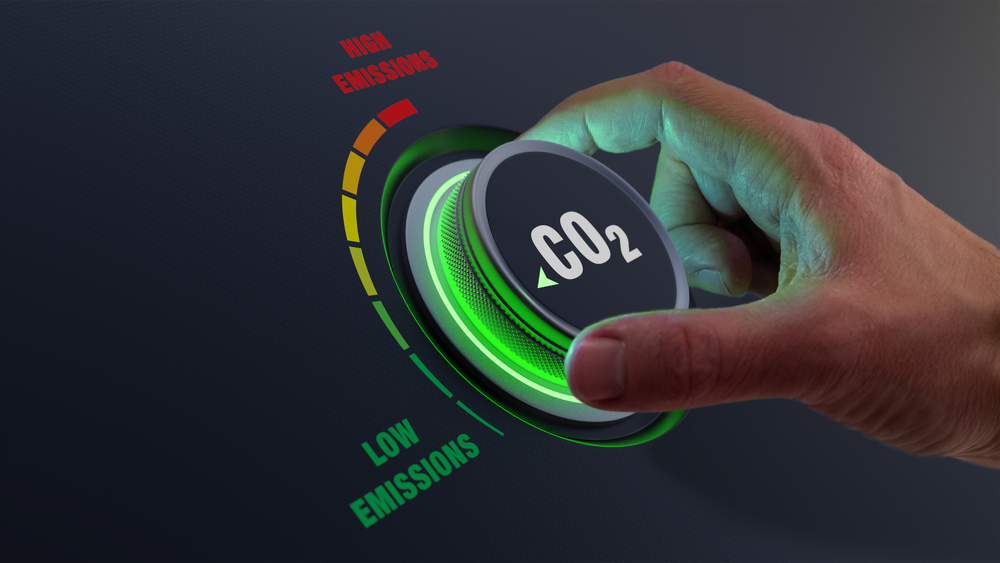How Air Source Heat Pumps Help With Carbon Reduction
Carbon reduction is something we are encouraged to contribute towards individually and as a business. Many alternative methods are available to help you reduce your carbon output, one of which being an air source heat pump.
In this blog, we will share answers regarding how air source heat pumps help with carbon reduction.
At Helec, we proudly offer multiple services to support building projects using renewable, sustainable, and low-carbon technologies. Our 17 years of experience provide us with the expertise to professionally handle the services of design and consultation, all the way to installation and performance monitoring.
Why is carbon reduction important?
Carbon reduction is essential for mitigating the impacts of climate change. Here’s why:
Global Warming: Carbon dioxide is a primary greenhouse gas contributing to global warming. Reducing emissions helps slow down the rate of temperature increase.
Extreme Weather Events: Climate change intensifies extreme weather events like hurricanes, floods, and droughts, causing significant economic and human loss.
Rising Sea Levels: Melting glaciers and ice caps contribute to rising sea levels, threatening coastal cities and communities.
Ecosystem Disruption: Climate change disrupts ecosystems, leading to loss of biodiversity and affecting food production.
Economic Impacts: The costs of climate change, including damage to infrastructure and loss of productivity, can be substantial.
Human Health: Extreme heat, air pollution, and the spread of diseases are linked to climate change, impacting public health.
By reducing carbon emissions, we can help protect our planet, safeguard future generations, and build a more sustainable future.
Are there Legal Requirements for Carbon Reduction in the UK?
Key Regulations:
Climate Change Act 2008: This sets a long-term framework for reducing greenhouse gas emissions in the UK.
- Companies Act 2006: Larger companies are required to report on their greenhouse gas emissions and energy use.
Sector-specific regulations: Industries such as energy, transport, and manufacturing have specific regulations to reduce emissions.
Additional Factors:
Supply Chain Pressure: Many large companies are imposing carbon reduction targets on their suppliers.
- Consumer Demand: Increasingly, consumers are choosing businesses with strong sustainability credentials.
- Financial Risks: Climate change poses financial risks to businesses, including physical risks (e.g., floods) and transition risks (e.g., changes in regulations).
While the specific requirements vary depending on the size and sector of a business, it’s clear that carbon reduction is becoming a legal and commercial imperative.
Air Source Heat Pumps: The Basics
How it works:
Extracting heat: The outdoor unit absorbs heat from the air, even in cold weather.
- Transferring heat: This heat is transferred to a refrigerant, which changes from a liquid to a gas.
- Heat creation: The refrigerant is compressed, generating heat.
Heating your building : The hot refrigerant heats water, which is then circulated around your building to warm your radiators or underfloor heating.
Key benefits:
Energy efficient: They can be up to four times more efficient than traditional gas boilers.
- Environmentally friendly: They reduce carbon emissions as they don’t burn fossil fuels.
Versatile: They can also cool your buildings in summer.
Types of ASHPs:
Monobloc: All components are in one outdoor unit.
Split system: The system is divided into indoor and outdoor units.
How air source heat pumps help with carbon reduction

Air source heat pumps (ASHPs) are increasingly recognised as a key technology in the transition to a low-carbon economy.
Their role in reducing carbon emissions is significant and multifaceted.
Direct Carbon Reduction
Elimination of Fossil Fuel Combustion: Unlike traditional gas or oil boilers, ASHPs do not burn fossil fuels. This directly eliminates the release of carbon dioxide (CO2) and other harmful pollutants into the atmosphere.
Efficiency Gains: ASHPs operate on a heat transfer principle, extracting heat from the outside air even in cold conditions. This process is highly efficient, meaning less electricity is required to produce a given amount of heat compared to traditional heating methods.
Indirect Carbon Reduction
Contribution to a Cleaner Electricity Grid: While ASHPs use electricity, the UK’s electricity grid is becoming increasingly decarbonised with a growing proportion of renewable energy sources like wind and solar.
By using electricity for heating, ASHPs contribute to the increased demand for clean energy, incentivising further investment in renewable generation.
Reduced Reliance on Fossil Fuels: Widespread adoption of ASHPs can lead to a significant reduction in demand for fossil fuels for heating, helping to phase out their use.
Additional Benefits for Carbon Reduction
Flexibility: ASHPs can also provide cooling in summer, reducing the need for air conditioning which can be energy-intensive.
- Integration with Renewables: ASHPs can be combined with renewable energy systems, such as solar panels, to create a highly efficient and low-carbon heating and cooling solution.
In essence, air source heat pumps offer a compelling proposition for reducing carbon emissions. By directly eliminating fossil fuel combustion and contributing to a cleaner electricity grid, they play a vital role in mitigating climate change.
As the technology continues to develop and become more affordable, their adoption is expected to accelerate, further accelerating the transition to a low-carbon future.
Air Source Heat Pumps: Rest and Maintenance
Air source heat pumps don’t require rest. Unlike some older technologies, they’re designed for continuous operation. They can run 24/7 without any issues.
However, regular maintenance is essential for optimal performance and longevity. Just like any mechanical system, they benefit from periodic checks and servicing.
Key maintenance points include:
- Annual service: A professional should inspect the unit for any issues, clean filters, and check refrigerant levels.
- Filter cleaning: Regularly cleaning the filters can improve efficiency and prevent breakdowns.
- Outdoor unit care: Remove debris like leaves and snow from the outdoor unit.
By following a regular maintenance schedule, you can ensure your air source heat pump operates efficiently and reliably for many years.
Can I do maintenance on an air source heat pump myself?
DIY Maintenance
You can do the following:
- Clean filters regularly: This helps maintain airflow and efficiency.
- Clear debris from the outdoor unit: Remove leaves, twigs, and other obstructions.
Inspect for damage: Look for any visible signs of damage to the unit.
Professional Maintenance
Tasks that require specialized knowledge and equipment should be left to professionals:
- Refrigerant checks: Handling refrigerants requires specific qualifications and equipment.
- Electrical components: Any work on electrical components should be done by a qualified electrician.
- Performance checks: A professional can assess the overall system performance and identify potential issues.
It’s recommended to have your air source heat pump serviced annually by a qualified engineer. This ensures optimal performance, extends the lifespan of your system, and maintains warranty validity.
Invest in an air source heat pump

We hope to have provided everything you need to know by showing you how air source heat pumps help with carbon reduction’ For more information on our financing options, feel free to click the link below for our contact information, so you can start your journey with us today.
The team here at Helec thanks you for taking the time to read our blog. If you have any further questions, you can contact us here. Alternatively, if you want to enquire about our expert services or for more information on our solutions, click here.
Our wide range of services enables us to provide consultation, installation, and maintenance if you require it.
Our expertise provides us the ability to offer the following energy solutions:
- Combined heat and power packages
- Complete CHP service and maintenance packages
- Thermal stores and buffer vessels
- Air & Ground source heat pumps
- Solar thermal hot water systems
- Large district residential heating systems
And more. See how Helec can help you today.
